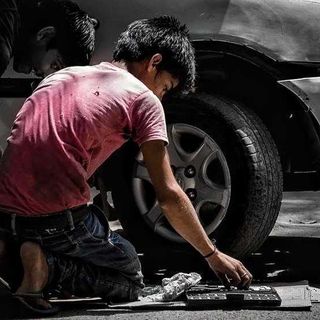In This Is My Family, we explore alternative family structures and the institution of marriage in India.
I was living alone in the city until I found Neha, who I now call my granddaughter.
Neha was a volunteer with an organization that sends people to keep old people company. They offer to take them for walks, accompany them for their doctor’s appointments, or spend the whole day just being with them — watching television, reading out newspapers or stories. Basically, they are friends for the old and lonely. For this, they get some money in return and for Neha, this helped her pay for her education and a part of the house rent.
Both my children live abroad — they call me too — but I didn’t want to move because this is the house I made memories in with my husband and where my children grew up. I didn’t want to abandon any of that and move to make a new life.
But then, they sent Neha, who became my family here. On the first day, out of her own pocket money, she got me flowers and a little pastry. She reminded me of my granddaughters, but soon with her around, weirdly, I didn’t even miss them. I realized that her bubbly and helping nature was was what reminded me of them.
First, Neha asked me everything I liked to do and at what time of the day. We designed a routine that included morning walks, time for television, afternoon naps, puzzle-solving, evening walks and meeting friends, followed by dinner and some more television and sleeping.
And for five years, she has ensured that we follow it. In return for all the care she gives me, I promised to teach her English and help her finish her college assignments. For the first two years, she lived in her own house, but I think I was getting so used to her being around that I asked her parents and the company she worked with to let her stay with me. They both agreed. And since then, I’ve never felt that I don’t live with my family.
Neha is everything to me right now. There have been times that I have told my children to take vacations in other places rather than spending their holidays with me in India doing nothing. The only time I asked them to come down was when Neha wanted to attend a wedding and had to be gone for 10 days.
But even when she was away, she made it a point to call me every day to tell me that she missed me. She would say, “Ajji (grandmother), I wish you came for the wedding, too.” And I was so touched by it because she had her own grandmother there with her. She also made me speak to her grandmother, who told me that now Neha has grown more fond of me than her.
Related on The Swaddle:
This Is My Family: the Widower Who Is Dating Again at 63
I couldn’t wait for her to be back so we could go back to our routine. She knew my love for puzzle-solving and sudokus. One afternoon, I found her cutting up all the sudoku puzzles I hadn’t solved from newspapers and presented a booklet to me. How can I not love her? We even talk in English now, and I ensure she’s on top of everything when it comes to her studies and grades in college. Her parents are very happy with her progress, and for all of them, too, I’m their ajji. I don’t go without her to meet my friends or to any family functions. They all know she’s my granddaughter and treat her like it. I take her for a movie twice a month and ensure she reads books and newspapers. I want the best for her. We go out for lunches and dinners, too. Honestly, I’ve never felt happier about having company before. On some days, I joke with her that she keeps me so busy that I don’t even have time to remember my husband.
Now, her parents are insisting on getting her married. She’s just 23, so I’m trying to convince them to wait a few more years so she can work somewhere else while also being with me, to become more independent financially. It’s for her good only. I don’t know what will happen on that front but I know one thing for sure: I’m not letting her go even if it means she and her husband need to live with me.
This interview has been condensed and edited for clarity. As told to Anubhuti Matta.




